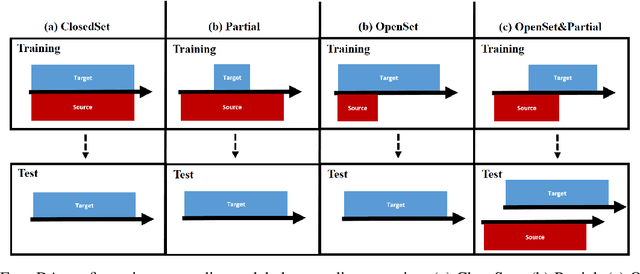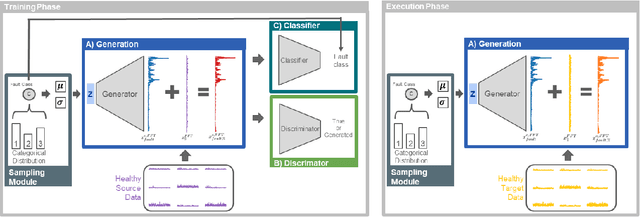Prof. Dr. Olga Fink
Controlled Generation of Unseen Faults for Partial and OpenSet&Partial Domain Adaptation
Apr 29, 2022



Abstract:New operating conditions can result in a performance drop of fault diagnostics models due to the domain gap between the training and the testing data distributions. While several domain adaptation approaches have been proposed to overcome such domain shifts, their application is limited if the label spaces of the two domains are not congruent. To improve the transferability of the trained models, particularly in setups where only the healthy data class is shared between the two domains, we propose a new framework based on a Wasserstein GAN for Partial and OpenSet&Partial domain adaptation. The main contribution is the controlled fault data generation that enables to generate unobserved fault types and severity levels in the target domain by having only access to the healthy samples in the target domain and faulty samples in the source domain. To evaluate the ability of the proposed method to bridge domain gaps in different domain adaption settings, we conduct Partial as well as OpenSet&Partial domain adaptation experiments on two bearing fault diagnostics case studies. The results show the versatility of the framework and that the synthetically generated fault data helps bridging the domain gaps, especially in instances where the domain gap is large.
 Add to Chrome
Add to Chrome Add to Firefox
Add to Firefox Add to Edge
Add to Edge